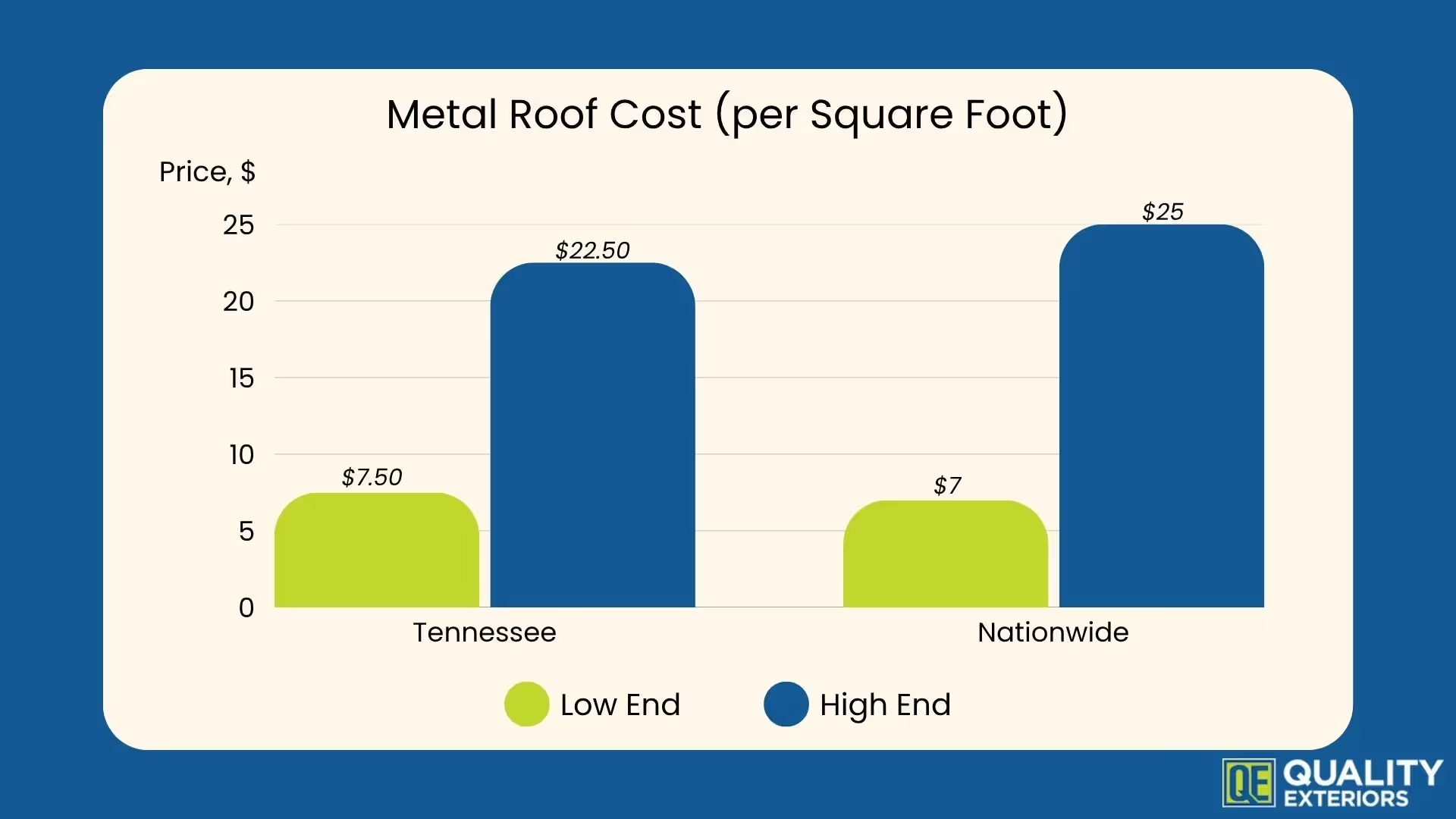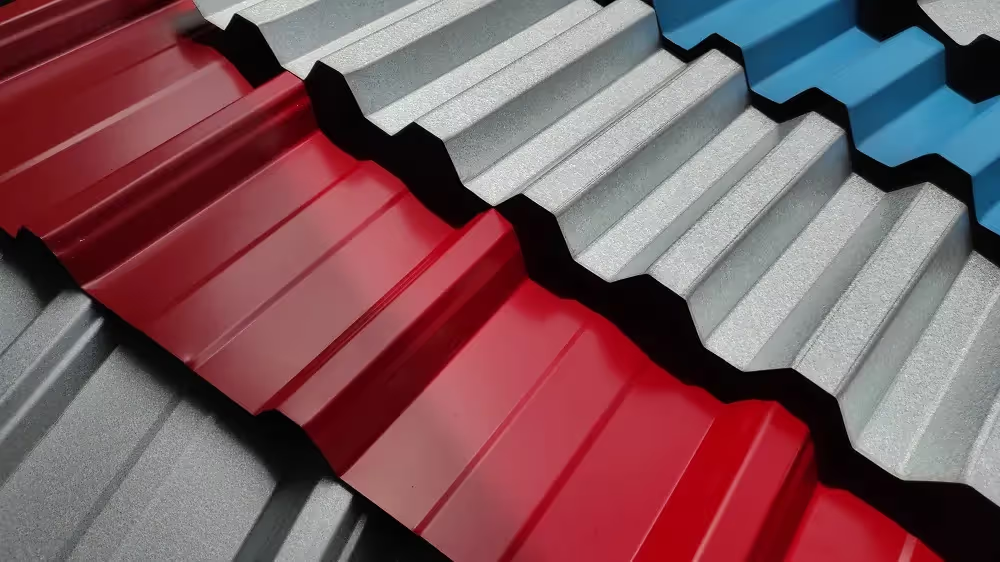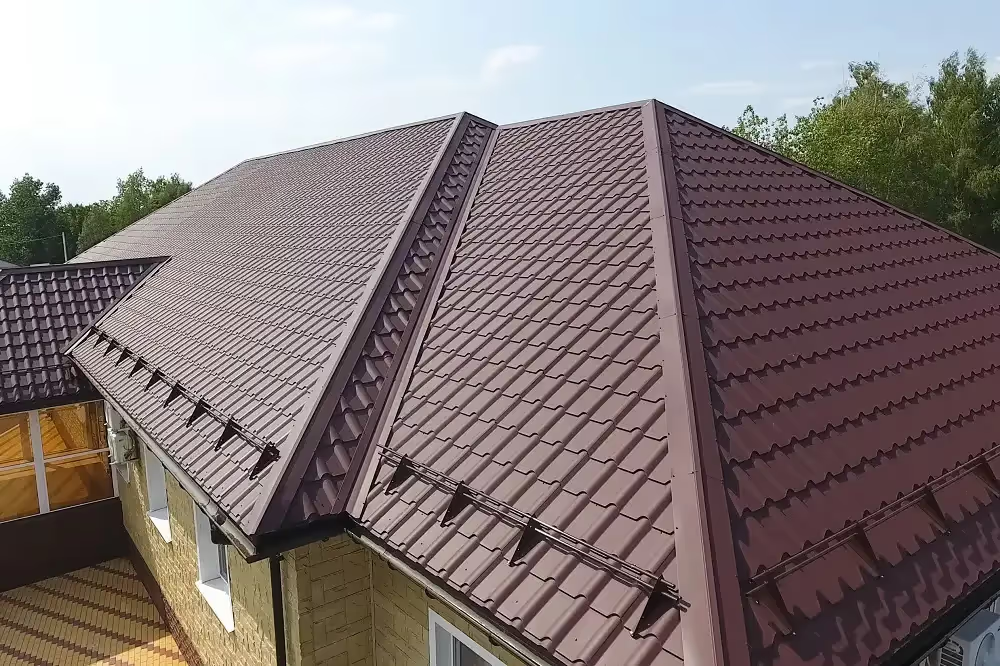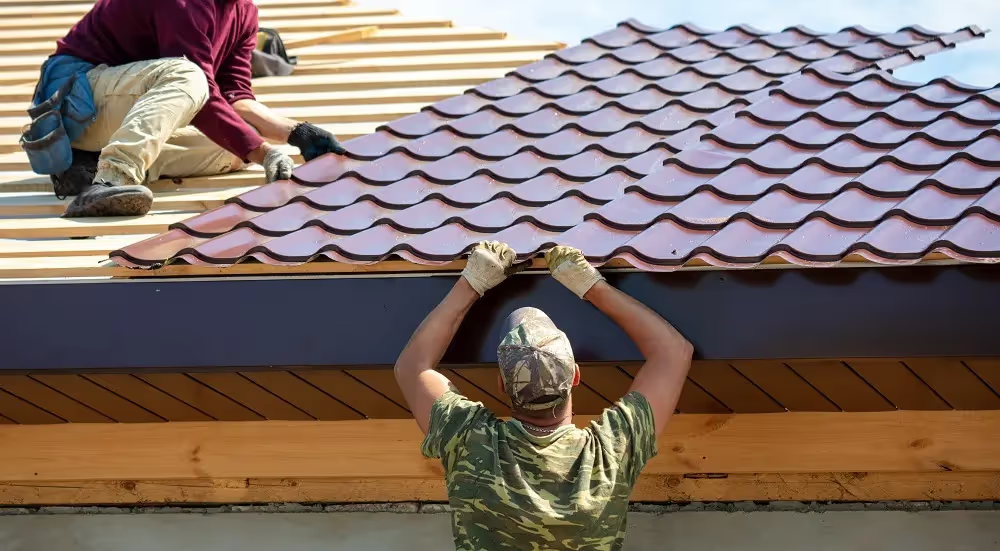The Average Cost of a Metal Roof in 2025

In Tennessee, the cost of a metal roof typically ranges from $15,000 to $45,000 ($7.50 to $22.50 per square foot) for an average-sized home, with most homeowners investing between $24,000 to $30,000 for a complete metal roof installation. Nationally, prices can vary significantly, from $14,000 to $50,000 ($7 to $25 per square foot), depending on the region, material choices, and local labor rates. The price variation between regions primarily stems from:
- Local labor market conditions and contractor availability
- Regional material supply chains and transportation costs
- Climate-specific installation requirements
- Local building codes and permit costs
- Market competition and demand
Factors That Influence Tennessee’s Metal Roof Prices

One of the key factors in making an informed decision and planning your budget is having an understanding of the various elements that impact your metal roofing project's final cost. Let's delve into the key factors that influence metal roof pricing in our region.
Material Type
The type of metal roofing material you choose will largely impact your project's overall cost. In Tennessee, we see particular preferences based on our climate conditions and architectural styles. Each material offers unique benefits and price points:
Want to learn more about different metal roofing materials and their specific benefits? Check out our comprehensive guide to metal roofing.
Installation & Labor Costs
In Tennessee, professional metal roof installation typically costs between $5.5 and $15 per square foot, which accounts for approximately 60% of your project's total cost. The installation timeline usually spans 3–7 days, depending on your roof's complexity and size. There are different installation methods:
If you’re planning a metal roof installation, be sure to factor in additional expenses that can affect your total budget:
- Permits and regulations: Roofing permits cost $250 to $500, with some areas adding inspection fees of $100 to $200.
- Old roof removal: Removing an old roof can add $1,000 to $5,000 based on size and disposal fees.
- Decking repairs: Replacing rotted decking costs $2 to $5 per square foot and can significantly increase the total cost.
- Underlayment: Essential for leak protection, underlayment costs range from $1 to $1.30 per square foot, depending on the type.
Each of these factors adds to the overall complexity of the roofing project, contributing to higher installation costs and a longer timeline.
Roof Complexity
How complex your roof is will also help determine the final cost of your metal roofing project. For example, features like steep pitches, multiple valleys, dormers, and intricate designs increase labor and material expenses by up to 30%. Here's a detailed breakdown of complexity factors:
To avoid unexpected costs, you’ll want to get a professional assessment of your roof’s structure. An expert can provide an accurate estimate and suggest cost-effective ways to manage complexity — such as simplifying the design or addressing structural repairs early.
If your roof only needs a repair rather than a full replacement, check out our detailed guide on roof repair costs to see how you can save even more and extend your roof’s lifespan!
Roof Size
When budgeting for a metal roof, the total cost is directly tied to the size of your roof. Unlike house square footage, roof size accounts for the slope, overhangs, and architectural features, making it slightly larger than your home’s footprint. Roofs are rarely flat, so the slope or "pitch" must be considered. Simply put, a steeper roof has more surface area.
Roof size is typically measured in roofing squares, with one square equal to 100 square feet of roof surface. Here's an estimated cost based on roof sizes:
By knowing your roof’s true size and considering how complexity impacts pricing, you can plan your project confidently and avoid unexpected expenses.
#cta_here
Cost Comparison: Metal vs. Other Roofing Materials
Metal roofs are often seen as a premium choice due to their resilience and energy efficiency, but how do they compare to other popular roofing options? Let’s explore a detailed breakdown of the initial costs and projected roofing material lifespan.
In Tennessee’s climate, the durability of a metal roof offers a significant advantage over materials like asphalt shingles, which may require frequent repairs due to severe weather conditions. If you're planning to stay in your home long-term or want to reduce maintenance expenses, a metal roof is a wise investment.
Long-Term Value and Benefits of Metal Roofs

In the previous section, we highlighted the impressive lifespan of metal roofs — 50+ years — which outlasts most other roofing materials by decades. However, longevity is only one part of the story that influences long-term value.
While an asphalt shingle roof and other materials may seem cheaper upfront, its shorter lifespan means higher replacement costs in the long run. Here's how a new metal roof can enhance your home’s value and reduce costs over time:
- Low maintenance: Costs around $200–$600 per year for routine inspections and cleaning.
- Energy efficiency: Reflective coatings can reduce energy costs by up to 25% during hot summers.
- Return on investment (ROI): Homeowners can recoup an average of 61.2% of their investment during resale.
How to Save Money on Your Metal Roofing

A metal roof is a worthwhile investment, but that doesn’t mean you have to pay top dollar for quality. With smart planning and a few cost-saving strategies, you can get the best value for your money. Here are some simple yet effective ways to save:
- Choose affordable materials: Opt for cost-effective options like steel or corrugated metal panels instead of premium choices like copper or zinc.
- Schedule during the off-season: Roofing projects in late fall or winter often come with discounts due to lower demand.
- Check for tax credits and rebates: Energy-efficient metal roofs may qualify for federal tax credits or local utility rebates.
- Negotiate and compare quotes: Get multiple quotes from reputable contractors and ask about discounts for seniors, military, or special promotions.
- DIY small tasks: Handle minor add-ons, such as painting roof vents or installing simple accessories, once the professional installation is complete.
- Discounts: Many contractors offer discounts for seniors, military personnel, and first-time customers. Don’t forget to ask about deals and bundles.
Whether you're upgrading your old roof or planning a new roof installation, these simple yet effective tips will help you stay within budget without compromising quality!








.webp)

